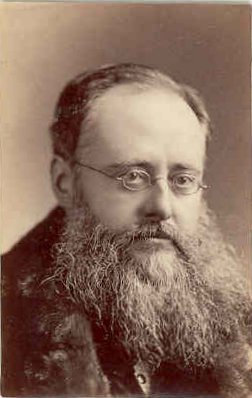
200th Birth anniversary of Wilkie Collins
Wilkie Collins (January 8, 1824 – September 23, 1889) is often referred to as the forefather of the English detective novel. He belonged to the "sensational" school of writing during the Victorian Period. With widely acclaimed novels like The Woman in White, The Moonstone, and The Frozen Deep, along with successful plays, Collins delved into the repercussions of mysterious, shocking, and criminal occurrences within Victorian middle-class households. In his early life, William Wilkie Collins, named after his godfather David Wilkie, the Scottish painter, entered the world on Cavendish Street in Marylebone, London, on January 8, 1824. The eldest son of William Collins, a landscape artist and Royal Academy member, and Harriet Geddes, a former governess, Wilkie Collins' upbringing and education laid the foundation for his later literary accomplishments.
After spending a year at the Maida Hill Academy, a small preparatory school near Tyburn, England, Wilkie Collins accompanied his family to Italy in 1837, where they stayed until 1838. During their time in Italy, the Collins family explored archaeological ruins, visited museums, and lived in various cities such as Rome, Naples, and Sorrento before returning home. Subsequently, from 1838 to 1841, Wilkie attended a boys' school under the supervision of Henry Cole in Highbury. During his time there, Collins, having acquired knowledge of Italian and absorbed plots from foreign literature, was compelled to share stories with fellow students at night, driven by both his linguistic abilities and a tendency to boast about them.
Collins encountered initial setbacks in his writing career; his first novel, Iolani, faced rejection and remained unseen until 1995, long after his demise. The progress of his second novel, Antonina, was interrupted when his father passed away, leaving it incomplete. Following his father's death, Wilkie Collins redirected his efforts toward crafting a two-volume biography, published by subscription in 1848. This biography not only commemorated his father but also garnered attention from the literary world, marking a turning point in Collins' recognition. In 1851, a pivotal moment occurred when Collins crossed paths with Charles Dickens, establishing a close and enduring friendship between the two writers. While Dickens wasn't widely known for mentoring fellow authors, he played a crucial role as a supporter, collaborator, and mentor for Collins.
Wilkie Collins remained unmarried throughout his life, and it has been suggested that his intimate awareness of the troubled marriage between Charles and Catherine Dickens might have played a role in this choice. During the mid-1850s, Collins entered into a domestic arrangement with Caroline Graves, a widow with a daughter. Graves took up residence in Collins' home and managed his domestic affairs for the majority of three decades.
Throughout his lifetime, Wilkie Collins penned a prolific body of work, composing 30 novels and over 50 short stories. Notably, some of his short stories found publication in magazines edited by Charles Dickens, emphasizing their close literary association. In addition to his fiction, Collins ventured into other literary realms, contributing a travel book titled "A Rogue's Life" and producing plays. Among his theatrical works, "The Frozen Deep" stands out as the most renowned, serving as an allegory for the ill-fated Franklin expedition's attempt to discover the Northwest Passage across Canada.
Wilkie Collins passed away in London on September 23, 1889, at the age of 69, following a debilitating stroke. In his will, he allocated the remaining proceeds from his writing career among his two partners, Graves and Rudd, as well as the Dawson children.
Aigerim Rysbakova, International Book Department

